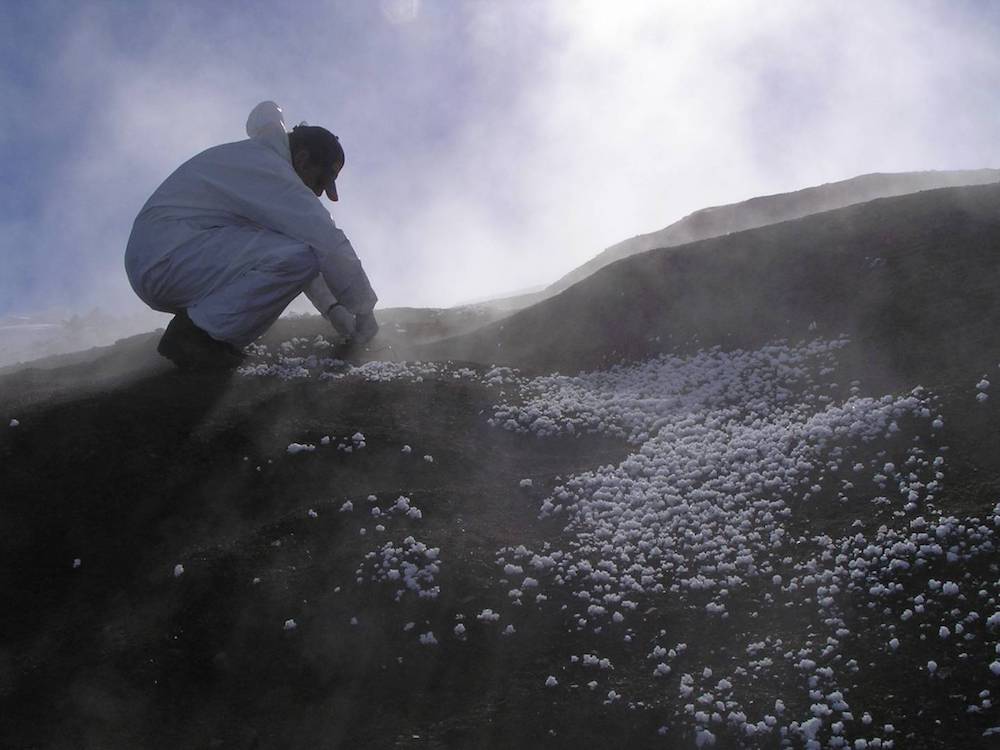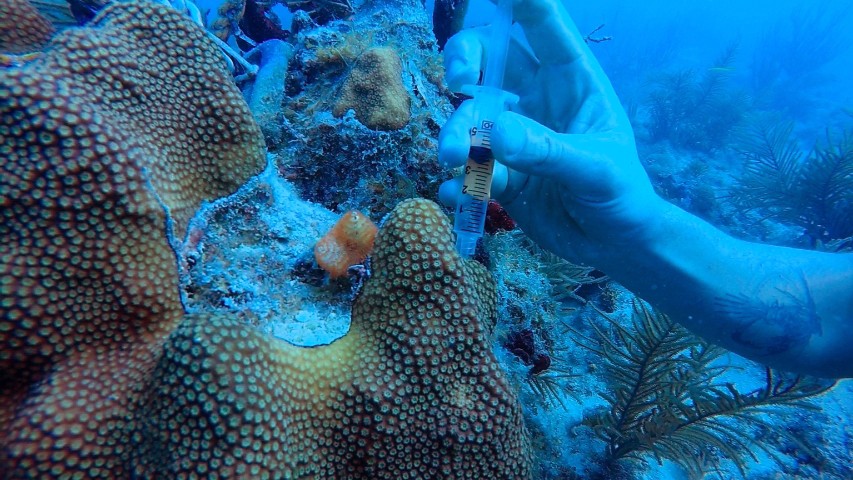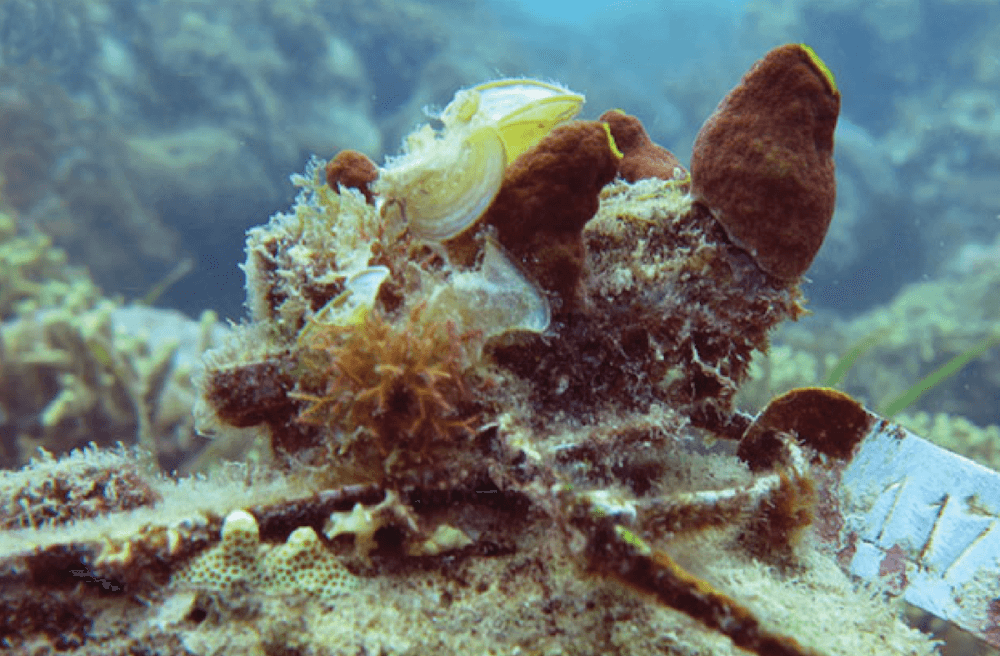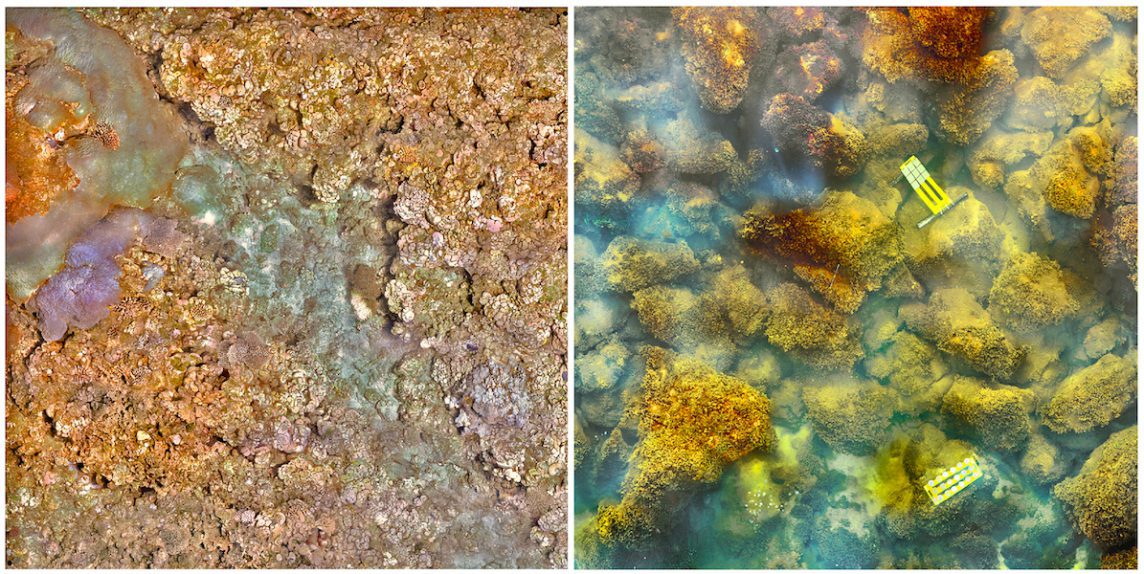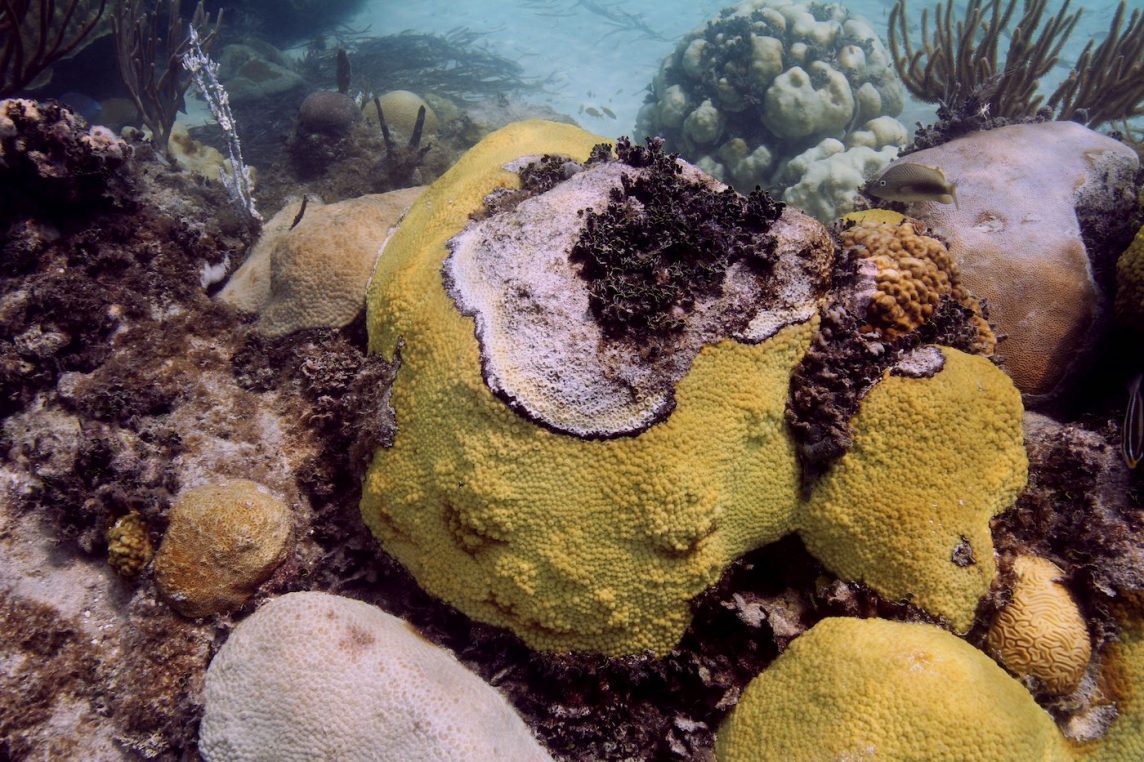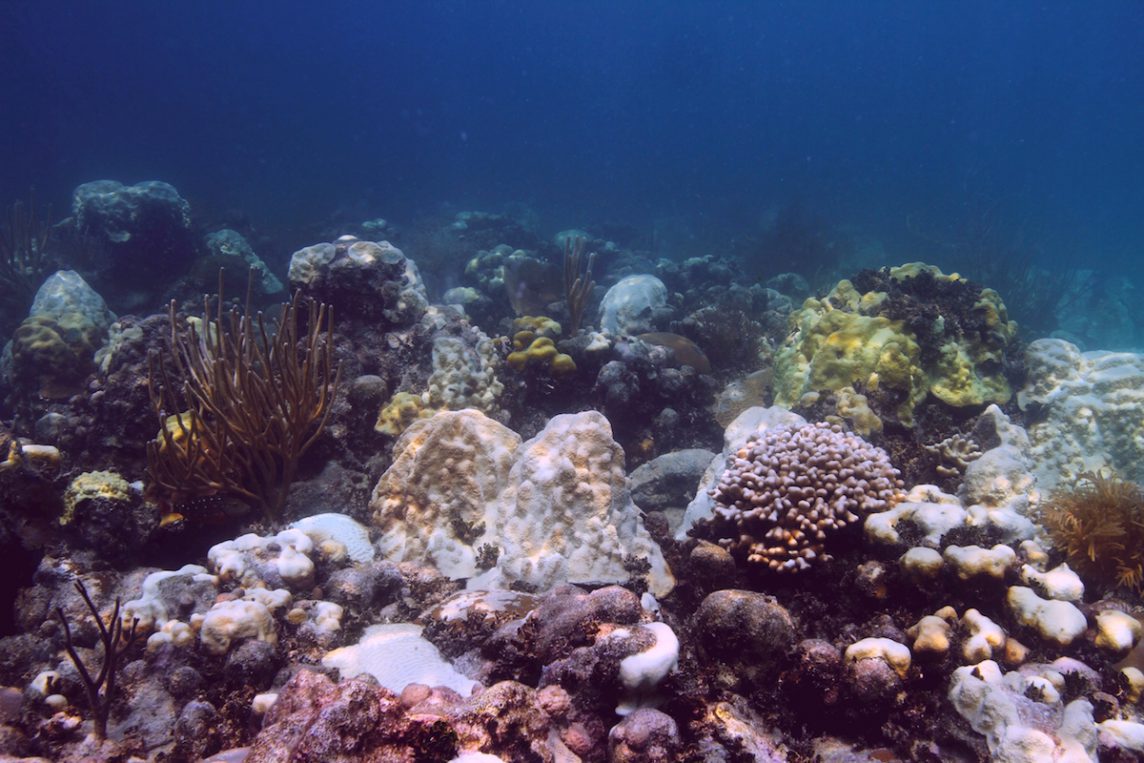In an effort to better understand our microbiomes, scientists from NOAA’s Atlantic Oceanographic and Meteorological Laboratory (AOML) took part in a massive global research collaboration known as the Earth Microbiome Project (EMP), which recently released the first reference database, or atlas, of microbes covering the planet. This guide, released online in Nature today, will allow scientists to collaborate on studies and catalogue microbial diversity at an unprecedented scale.
Land-Based Mircobes Affecting Coral Reefs
Scientists found that microbes and their genetic material from land-based sources of pollution could be found in reef water and in tissues of corals. This could affect the genomics of the native microbial communities found in coral reefs, which can impact how corals thrive and survive. These new insights highlight an additional potential threat to corals from land-based sources of pollution in southeast Florida, where corals are already under existential threat from warming oceans and resulting coral bleaching, disease and mortality.
Study shows ocean acidification is two-front assault on coral reefs
The study, published in the Proceedings of the Royal Society B, measured changes in the reef framework in several naturally high-carbon dioxide settings near Papua New Guinea. For the first time, scientists found increased activity of worms and other organisms that bore into the reef structure, resulting in a net loss of the framework that is the foundation of coral reef ecosystems.
Volcano Spewing Carbon Dioxide Drives Coral to Give Way to Algae
The new research published online August 10 in Nature Climate Change provides a stark look into the future of ocean acidification – the absorption by the global oceans of increasing amounts of human-caused carbon dioxide emissions. Scientists predict that elevated carbon dioxide absorbed by the global oceans will drive similar ecosystem shifts, making it difficult for coral to build skeletons and easier for other plants and animals to erode them.
NOAA Research on Microbial Communities Contributes to National Microbiome Initiative
On May 13th, the White House Office of Science and Technology Policy introduced the National Microbiome Initiative, an effort to support multi-agency research to help sample and better understand communities of microorganisms that are critical to both human health and the world’s ecosystems. As the nation’s premier ocean science agency, NOAA is leading interdisciplinary research to improve observation and assessment of marine microbiomes. To support this national initiative, NOAA’s Atlantic Oceanographic and Meteorological Laboratory (AOML) received nearly $2 million in funding this year to conduct a number of projects that integrate genetic sampling techniques and technologies to help advance the understanding of the ocean’s microbiomes.
AOML Leads Research Efforts Across Caribbean to Improve Bleaching Predictions
For the third time in recorded history, a massive coral bleaching event is unfolding throughout the world’s oceans, stretching from the Indian Ocean to the Caribbean. Above average sea surface temperatures exacerbated by a strong El Niño could result in the planet losing up to 4,500 square miles of coral this year alone, according to NOAA. The global event is predicted to continue to impact reefs into the spring of 2016.
